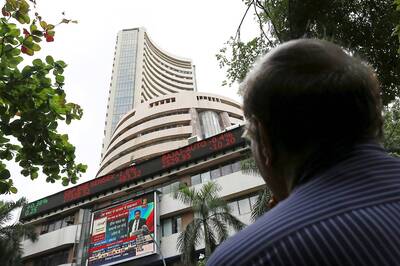
views
Wall Street’s main indexes dipped on Friday as fears grew over fading stimulus and the blow to the economy from increasing coronavirus infections.
U.S. Treasury Secretary Steven Mnuchin on Friday defended his decision to end several of the Federal Reserve’s key pandemic lending programs on Dec. 31, saying Congress should use the money to help small U.S. companies with grants instead.
The decision to end the program, which was deemed essential by the central bank, comes as data showed a rise in jobless claims last week as new business restrictions to control spiraling COVID-19 infections likely unleashed a fresh wave of layoffs.
California and Ohio imposed nightly curfews on Thursday, joining 20 U.S. states to have adopted new mandates this month to fight the spread of the virus.
“I don’t think we will go through a full-blown contraction or a complete shutdown, but as the vaccine starts to roll out there is potential for tremendous economic improvement next year,” said Scott Brown, chief economist at Raymond James in St. Petersburg, Florida.
U.S. Senate Democratic leader Chuck Schumer and Republican Majority Leader Mitch McConnell decided to resume COVID-19 relief talks on Thursday.
The S&P 500 and the Dow were little changed over this week following two strong weeks of gains, as investors juggled between growing optimism over an effective coronavirus vaccine and near-term economic damage from the surging COVID-19 infections.
Major banks have upgraded their stock market forecasts for 2021 after recent promising data from COVID-19 vaccine trials.
At 09:45 a.m. ET the Dow Jones Industrial Average fell 37.28 points, or 0.13% to 29,445.95, the lost 2.00 points, or 0.06% to 3,579.87 and the lost 9.78 points, or 0.08% to 11,894.94.
All major S&P sectors slipped, barring utilities.
Pfizer Inc rose 1.8% as the company said it has applied to U.S. health regulators for emergency use authorization of its COVID-19 vaccine.
Apparel and home fashion retailer Ross Stores Inc gained 2% after its quarterly sales topped expectations.
Gilead Sciences Inc fell 1% as a World Health Organization panel advised against the use of remdesivir for patients hospitalized with COVID-19, saying there was no evidence the drug improves survival or reduces the need for ventilation.
Declining issues matched advancing ones on the NYSE, and on the Nasdaq a 0.7-to-1 ratio favored decliners.
The S&P 500 posted nine new 52-week highs and no new low, while the Nasdaq Composite recorded 65 new highs and four new lows.
Disclaimer: This post has been auto-published from an agency feed without any modifications to the text and has not been reviewed by an editor
Read all the Latest News, Breaking News and Coronavirus News here


















Comments
0 comment